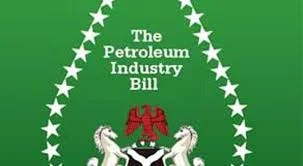The National Assembly has since 2000 held series of public hearing on the highly contentious Petroleum Industry Governance Bill (PIGB) with a view to passing same into law.
The absence of the PIB which seeks regulatory framework for the sector has led to lots of investment losses for the country. In assessing the effects the absence of the bill has had on the country, particular attention should be paid in understanding the history of the PIB, trends of countries endowed with natural resources, negative effects of the absence of the PIB and analysis by stakeholders in the sector.
History of the PIB
The Petroleum Industry Bill (PIB) now Petroleum Industry Institutional Framework Governance Bill (PIGB) was initiated as a legal framework for undertaking reforms in the Nigerian oil and gas industry. It has lingered in the National Assembly since year 2000 and is yet to receive the parliamentary nod to pass it into law. The PIB is an executive bill for an act to provide for the establishment of a legal, fiscal and regulatory framework for the petroleum industry in Nigeria and for other related matters. The bill’s provisions which covered industry regulation, upstream and downstream operations, fiscal terms, taxation, environmental management among others, had transparency and accountability at the core of its reform agenda.
This was to be primarily achieved through strengthening industry oversight and regulation, unbundling the national oil company, the Nigerian National Petroleum Company (NNPC) into independent commercial entities, and infusing commercial orientation into the new entities. The proposed petroleum industry reforms would move the control of the downstream oil and gas sector from government-controlled monopoly to private participation. The reforms were expected to form the nucleus of Nigeria’s aspiration to become one of the most industrialized nations in the world by the year 2020.
Trend of countries endowed with natural resources
However, there is enough evidence that countries rich in natural resources perform poorly, suffer high risk of corruption, conflict and political instability. In what has now become popularly known as ‘resource curse’, many resource dependent countries – including Nigeria, Angola, and other resource producers in Africa and Latin America, appear predestined for instability. However, evidence from countries such as Botswana, offer hope that resource dependent developing countries can use their resources to catalyse sustainable development. The case in Nigeria is not different. After almost five decades of oil production which earned Nigeria billions of dollars, Nigeria remains home to the largest population of poor people. More than 70 percent of the people (representing about 112 million Nigerians) live below poverty line, thus underscoring the very important place of the PIGB.
Negative effects of PIB absence
The absence of the PIGB as you may be aware has led to a lot of investment losses in the sector. Figures from the Nigeria Extractive Industries Transparency Initiative (NEITI) indicate that Nigeria loses $200 billion yearly due to the non-passage of the Petroleum Industry Bill (PIB) and another $15 billion is lost yearly in fresh investments to regulatory uncertainties. The delay in passing the PIB has hurt the heavily oil-dependent Nigerian economy very significantly, as up to 80 percent of all government revenue and more than 90 percent of the country’s exports are derived from crude oil sales. Plunging oil prices in the international market since the second half of 2014, coupled with renewed militant activity in the oil-rich Niger Delta region has led to a significant drop in oil production, aggravating the country’s economic losses.
Analysis of the PIB
A non-profit and non-governmental organisation that has keenly followed the PIB process, the African Centre for Leadership, Strategy and Development (Centre LSD), recently launched a research report on the PIGB with the theme “Beyond policy changes: Understanding and assessing the latest reforms in the Nigerian oil and gas sector”.
The research is divided into five parts including;
Oil sector legislation: Analysis of the new Petroleum Industry Governance and Institutional Framework Bill, identifying the gaps and opportunities.
Oil Swap Deals: Critical analysis of the new trends, transparency of the regime, benefits and value to advancing governance in the oil and gas sector.
Petroleum Products Pricing: An evaluation of the implementation of the new price management regime for petroleum products (premium motor spirit and kerosene), flagging the notable changes and emerging challenges.
Renewed Militancy in the Niger Delta: Examination of the effect on exploration, production and distribution of petroleum products.
National Oil Company Efficiency: An assessment of the impact of the restructuring of the Nigerian National Petroleum Corporation, NNPC, on efficiency, cost and good change in the petroleum industry.
In his remarks during the presentation, the project coordinator of the centre, Mr Monday Osasah, noted that the Senate President, Dr Bukola Saraki assured Nigerians during a public hearing held in December 2016 that the 8th Assembly would pass the bill in the first quarter of 2017, stressing the need for citizens to key in and engage the more to see the bill passed into law, adding the launch was deliberately put together to further arm and conscientise all stakeholders to rigorously engage the process until the bill is passed into law.

